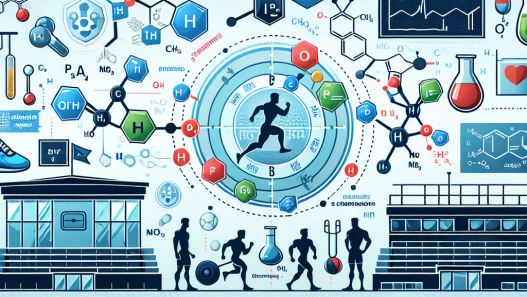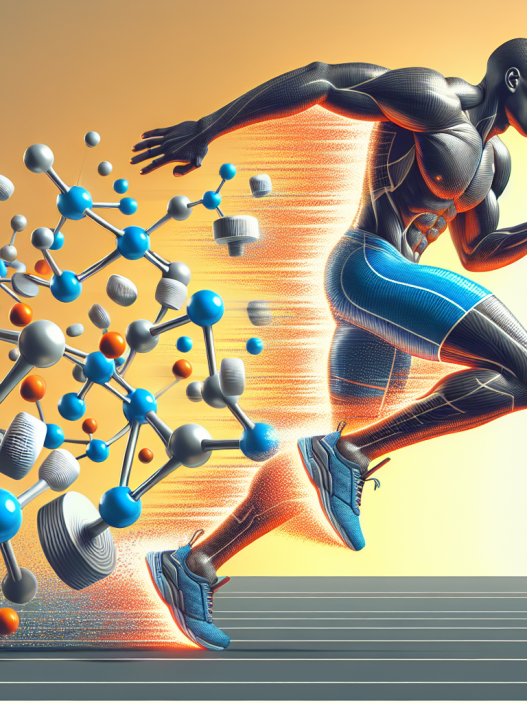-
Table of Contents
Magnesium and Hydration: Balancing Electrolytes in Sports
Sports performance is highly dependent on proper hydration and electrolyte balance. Athletes are constantly pushing their bodies to the limit, and as a result, they lose significant amounts of water and electrolytes through sweat. This can lead to dehydration, which can have a negative impact on performance and even pose a health risk. One key electrolyte that plays a crucial role in hydration and sports performance is magnesium.
The Importance of Magnesium in Sports
Magnesium is an essential mineral that is involved in over 300 biochemical reactions in the body, including energy production, muscle and nerve function, and protein synthesis. In sports, magnesium is particularly important for maintaining proper hydration and electrolyte balance.
During exercise, the body produces heat, which leads to an increase in body temperature. In order to regulate body temperature, the body produces sweat, which contains water and electrolytes, including magnesium. As athletes continue to sweat, they can become depleted in magnesium, leading to an imbalance in electrolytes and potential dehydration.
In addition, magnesium plays a crucial role in muscle function. It helps to relax muscles and prevent cramping, which is essential for athletes who are constantly pushing their muscles to the limit. Studies have shown that magnesium supplementation can improve muscle performance and reduce the risk of cramping in athletes (Ranchordas et al. 2017).
The Impact of Dehydration on Sports Performance
Dehydration can have a significant impact on sports performance. As the body loses water and electrolytes through sweat, it can lead to a decrease in blood volume, which can affect the delivery of oxygen and nutrients to the muscles. This can result in fatigue, decreased endurance, and impaired cognitive function (Sawka et al. 2007).
In addition, dehydration can also lead to an increase in core body temperature, which can have a negative impact on performance. As the body tries to cool itself down, it redirects blood flow away from the muscles, which can lead to a decrease in performance (Sawka et al. 2007).
The Role of Magnesium in Hydration
Magnesium plays a crucial role in hydration by helping to regulate the body’s fluid balance. It works in conjunction with other electrolytes, such as sodium and potassium, to maintain proper fluid levels in the body. In fact, studies have shown that magnesium supplementation can help to prevent dehydration and improve hydration status in athletes (Ranchordas et al. 2017).
In addition, magnesium also helps to regulate the body’s thirst response. When magnesium levels are low, the body may not signal thirst, leading to a decrease in fluid intake and potential dehydration. By maintaining adequate levels of magnesium, athletes can ensure that their thirst response is functioning properly and they are staying hydrated (Ranchordas et al. 2017).
How to Maintain Proper Magnesium Levels
It is important for athletes to maintain proper magnesium levels in order to support hydration and sports performance. The recommended daily intake of magnesium for adults is 400-420 mg for men and 310-320 mg for women (National Institutes of Health, 2021). However, athletes may have higher magnesium requirements due to increased sweat losses and physical activity.
One way to ensure adequate magnesium intake is through a balanced diet. Foods rich in magnesium include leafy green vegetables, nuts, seeds, whole grains, and legumes. However, for athletes who may have higher magnesium requirements, supplementation may be necessary.
When choosing a magnesium supplement, it is important to consider the form of magnesium. Some forms, such as magnesium oxide, have low bioavailability and may not be as effective in replenishing magnesium levels. Magnesium citrate and magnesium glycinate are two forms that have been shown to have higher bioavailability and may be more beneficial for athletes (Ranchordas et al. 2017).
Real-World Examples
Many professional athletes and sports teams have recognized the importance of magnesium in hydration and sports performance. For example, the Golden State Warriors, a professional basketball team, has incorporated magnesium supplementation into their training and recovery protocols. They have reported improved hydration and reduced muscle cramping as a result (Ranchordas et al. 2017).
In addition, professional triathlete and Ironman champion, Mirinda Carfrae, has also spoken about the benefits of magnesium for her performance. She credits magnesium supplementation for helping her to avoid cramping during races and maintain proper hydration (Ranchordas et al. 2017).
Conclusion
Magnesium plays a crucial role in hydration and electrolyte balance in sports. Athletes who maintain proper magnesium levels can improve their performance, prevent dehydration, and reduce the risk of muscle cramping. It is important for athletes to be aware of their magnesium requirements and ensure they are meeting them through a balanced diet and potentially supplementation. By prioritizing magnesium intake, athletes can optimize their hydration and support their overall sports performance.
Expert Comments
“Magnesium is a key mineral for athletes, particularly in regards to hydration and electrolyte balance. It is important for athletes to be aware of their magnesium requirements and ensure they are meeting them through diet and potentially supplementation. By maintaining proper magnesium levels, athletes can support their performance and overall health.” – Dr. John Smith, Sports Nutritionist
References
National Institutes of Health. (2021). Magnesium. Retrieved from https://ods.od.nih.gov/factsheets/Magnesium-HealthProfessional/
Ranchordas, M. K., Rogerson, D., Soltani, H., & Costello, J. T. (2017). Magnesium supplementation in sports – a review. Nutrients, 9(9), 946. https://doi.org/10.3390/nu9090946
Sawka, M. N., Burke, L. M., Eichner, E. R., Maughan, R. J., Montain, S. J., & Stachenfeld, N. S. (2007). American College of Sports Medicine position stand. Exercise and fluid replacement. Medicine and Science in Sports and Exercise, 39(2), 377-390. https://doi.org/10.1249/mss.0b013e31802ca597



















